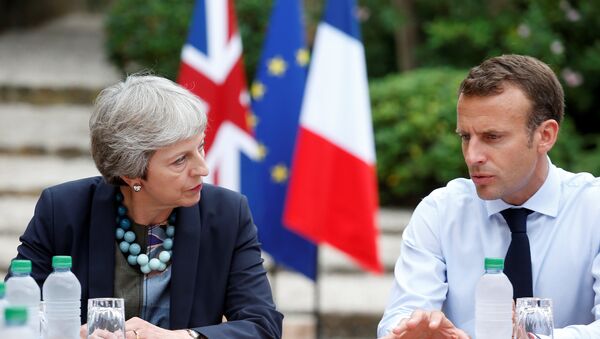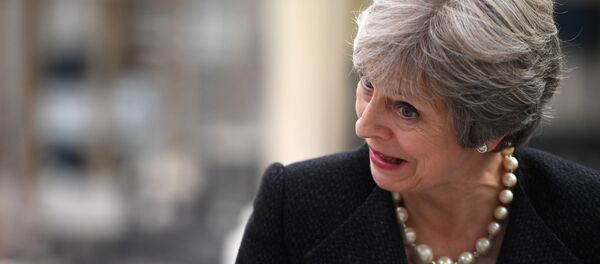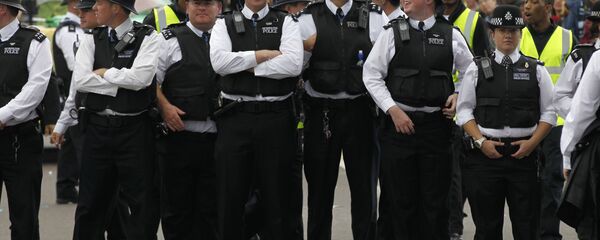Sputnik discussed the issue with Iain Begg, a professor at the European Institute of the London School of Economics and Political Science.
Sputnik: British Prime Minister Theresa May is hoping to prize away Emmanuel Macron from the rest of the European Union to sign up to her Chequers vision for Brexit looked tenuous on the eve of the pair's crunch talks. How significant is the development this?
I think it has very little chance of succeeding because one thing that's been most striking is the way the EU has dealt with these negotiations is their desire to have a common position, articulated by Michel Barnier. Therefore, the chance of getting a "divide and ruled approach" is very low.
READ MORE: Deutsche Bank Using Brexit as Convenient Excuse to Move Ops to Germany — Manager
Sputnik: The EU's chief Brexit negotiator, Michel Barnier, is viewed as unlikely to shift from his rigid approach to negotiations unless there is the consensus among the most powerful EU states. Is it likely that Barnier will soften his Brexit approach?
Iain: What's often forgotten in the UK is Barnier has a negotiating mandate that has been given to him by the European leaders.
The idea that he's got autonomy to say "yes I'll soften" or "I'll harden my view depending on what the British offer is"; is rather misplaced because he's rather constrained in what he's got to do and among the things that are significant. In his mandate it has what's called maintaining the integrity of the Single Market; the Chequers proposals would have to be described as rather confused in that respect, because they say Britain wants to be aligned and follow similar rules for good but not for services and that is inconsistent with the integrity of the single market and why it's become very hard for Barnier to agree to it.
READ MORE: EU Chief Brexit Negotiator Says Confident of Brexit Talks' Good Outcome
Sputnik: With just over 8 months to go before Britain is expected to leave the EU, very little has been finalized. Is Britain heading for a no deal Brexit?
Iain: There is a risk of a no deal but I think of a no deal, but I think both sides will realize that a no deal has damaging consequences for not just the UK but for the EU too, because it will disrupt trade and lead to uncertainty and nobody likes to have that kind of outcome.
READ MORE: Bank of England Hikes Interest Rates to Highest Level Since 2009 Economic Crisis
As that stands, there's still a fair chance of that going through with some fudging of the Irish Border, but what has been under discussion, particularly with the Chequers deal is the future relationship and that more problematic because you need to work out where Britain stands.
Is it akin to Norway, very deeply integrated into the EU but just not part of its institutions or is more like which is one of the things that Barnier has put on the table which is being a close relationship but not the full membership or the degree of membership that are implicit in the Chequers deal, or is it a much more remote arrangement which is what third countries have with the EU. All of that is still to be settled.
READ MORE: Boris the Victorious: Poll Suggests Johnson Should Be Next PM After Theresa May
The views and opinions expressed by Iain Begg are those of the speaker and do not necessarily reflect those of Sputnik.





